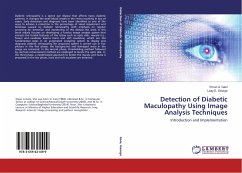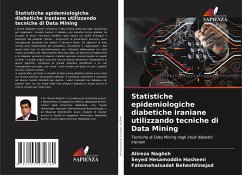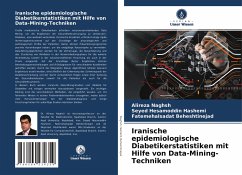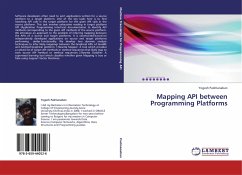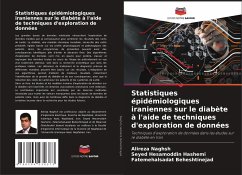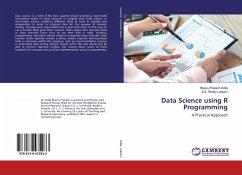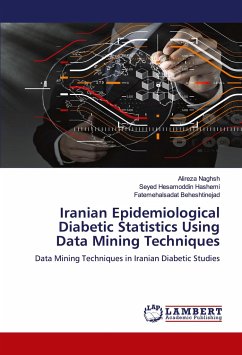
Iranian Epidemiological Diabetic Statistics Using Data Mining Techniques
Data Mining Techniques in Iranian Diabetic Studies
Versandkostenfrei!
Versandfertig in 6-10 Tagen
29,99 €
inkl. MwSt.

PAYBACK Punkte
15 °P sammeln!
Large medical databases require the knowledge-processed data mining to improve healthcare results. Diabetes, a global chronic disease, needs some rigid predictive tools based on the patient physiological and pathological profiles. Hence, the prevention programs can have beneficial consequences in order to avoid the final disaster. Data mining algorithms are implemented for predicting, classifying, and clustering raw data in the pre-processing step for further processing in both scientific research and real-life practices. The treatment decisions and early diagnosis of different diseases can be...
Large medical databases require the knowledge-processed data mining to improve healthcare results. Diabetes, a global chronic disease, needs some rigid predictive tools based on the patient physiological and pathological profiles. Hence, the prevention programs can have beneficial consequences in order to avoid the final disaster. Data mining algorithms are implemented for predicting, classifying, and clustering raw data in the pre-processing step for further processing in both scientific research and real-life practices. The treatment decisions and early diagnosis of different diseases can be based on these results. The improved outcomes can be obtained through the integration of these algorithms, including the identified diabetic severity and its associated consequences, as well as lower healthcare costs for both patients and healthcare systems. In this book, Iranian diabetic data mining studies and models are reviewed with some obtained valuable associations. The important contribution is the diverse methods introduced in order to handle missing values in real patient databases, but with many challenges in diabetic diagnosis and some research gaps remained for future studies.



